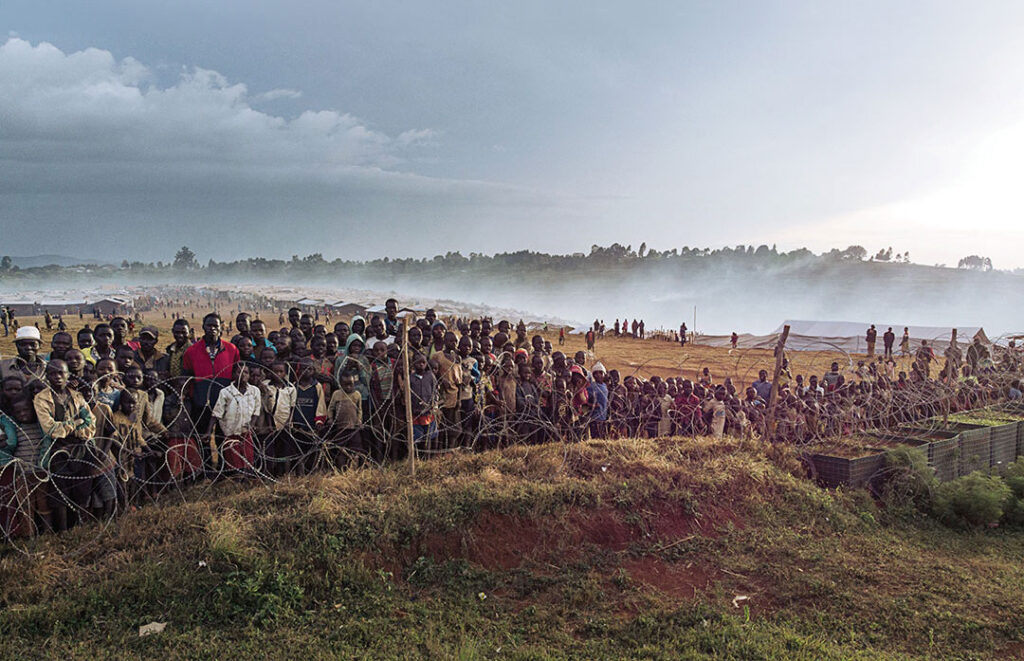ADF STAFF
The past two years have been hard ones for United Nations peacekeepers. The mission in Mali shut down suddenly. The mission in the Democratic Republic of the Congo has begun its shutdown, while missions in the Central African Republic and on the border of Sudan and South Sudan continue to face challenges.
In a 2023 study, research Professor Cedric de Coning of the Norwegian Institute of International Affairs noted that no new U.N. peacekeeping missions have been deployed since 2014, other than special political missions. Missions in the CAR, the DRC and Mali, he noted, have been unable to “protect civilians at a scale matching the expectations raised by their mandates.”
U.N. officials say that some stakeholders in the past year had questioned whether there was any future at all for U.N. peacekeeping missions. IPI Global Observatory said there was a “prevalent sense that the U.N. would no longer deploy large multidimensional peacekeeping operations, which would be downsized in favor of lighter footprint political presences.” A December 2023 meeting of the U.N. Peacekeeping Ministerial showed that although there still is support for current and new peacekeeping missions, new approaches are needed.
The reasons for the failed missions are complicated. Critics say that the missions are sometimes viewed as an extension of the military of the host country and are blamed for its failures. Peacekeepers often have a hard time adapting to shifts in political and cultural dynamics. Groups such as Russia’s mercenary Wagner Group — now calling itself Africa Corps — have meddled in peacekeeping operations and spread disinformation. Funding also is a problem, as yearslong peace missions can cost billions of dollars.
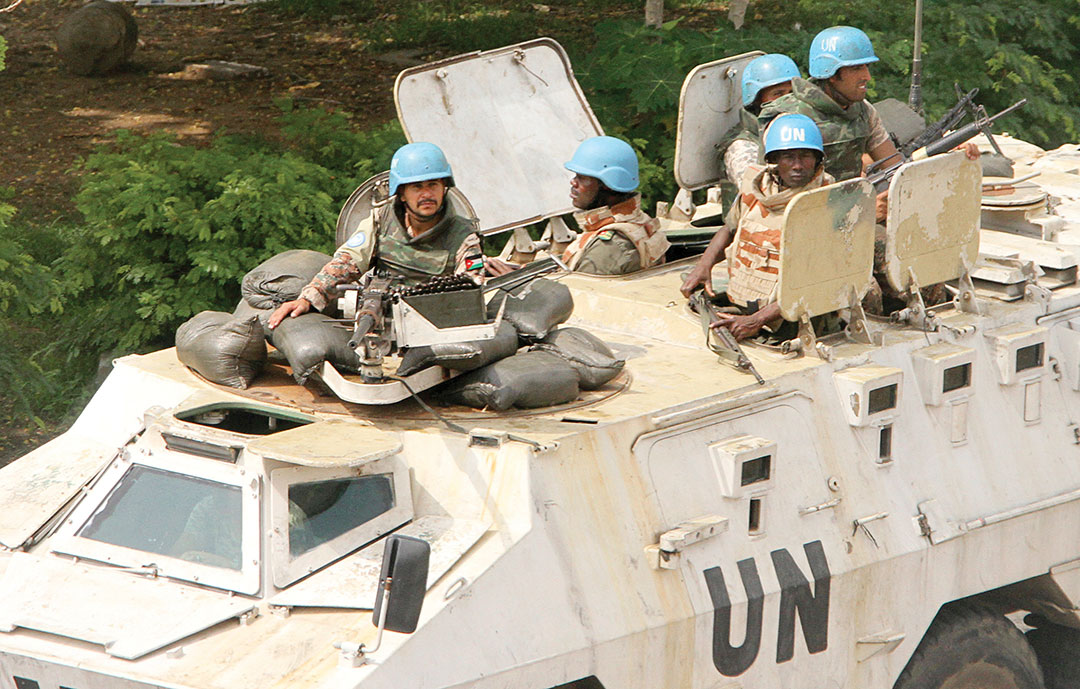
The U.N. has had successful peacekeeping missions in places such as in Côte d’Ivoire, Liberia and Sierra Leone. But the failures of the missions in the DRC and in Mali are forcing it to reassess how it conducts future missions.
“Over the years, U.N. peacekeeping mandates have become stretched and the responsibilities of peacekeepers sometimes blurred,” wrote Claire Klobucista and Mariel Ferragamo for the Council on Foreign Relations in 2023. Their report included a study by the University of the Free State’s Professor Theo Neethling, who noted that rather than monitoring peace as agreed upon by conflicting parties, some peacekeeping operations in Africa have been asked to protect facilities and infrastructure while undertaking counterinsurgency.
Still, studies show that peacekeeping missions save lives. Klobucista and Ferragamo noted that Georgetown University’s Lise Howard had found that “peacekeepers correlate with fewer civilian casualties, and that more peacekeepers — particularly more diverse peacekeepers — parallels both with fewer civilian deaths and fewer military deaths.” One group of experts modeled scenarios with and without intervention and found that peacekeeping missions ultimately are a cost-effective measure whose contributions toward mitigating conflict and preventing spillover often are underestimated. Jean-Pierre Lacroix, the U.N. chief of peace operations, also argues that the missions are underappreciated.
“[Peacekeepers] have helped many countries successfully navigate the difficult path from war to peace, from Liberia and Namibia to Cambodia, Sierra Leone, Timor-Leste and many other countries,” Lacroix told Deutsche Welle. He added that U.N. operations have a strong record of preventing and reducing violence and preventing wars from recurring.
TIME FOR CHANGE
The U.N. has been aware for some time that it must change. In 2018, it began the Action for Peacekeeping (A4P) initiative and updated it in 2021. The initiative now includes priorities for future missions:
Collective coherence behind a political strategy. The strategy must encompass the mission and key partners, including regional organizations, member countries, international financial institutions and U.N. agencies. Missions also will use their convening power to bring the collective resources of all partners to bear.
Accountability to peacekeepers. There is a need to advance efforts to improve the safety, living conditions and well-being of peacekeepers.
Accountability of peacekeepers. The focus must be on conduct and discipline, with an emphasis on prevention, enforcement, remedial action, and strengthened support to victims of sexual exploitation and abuse. The accountability must include the missions’ environmental footprint and also recognize good performance.
Strategic communications. This must be integrated into planning cycles and risk management to promote successes and manage expectations. A renewed emphasis must be placed on combating misinformation, disinformation and hate speech.
Cooperation with host countries. Constructive engagement remains central to political solutions by increasing peacekeepers’ safety and security, bolstering performance, and supporting successful transitions.
The initiative also includes two “cross cutting themes”: the Women, Peace and Security agenda and “innovative, data-driven and technology-enabled peacekeeping.”
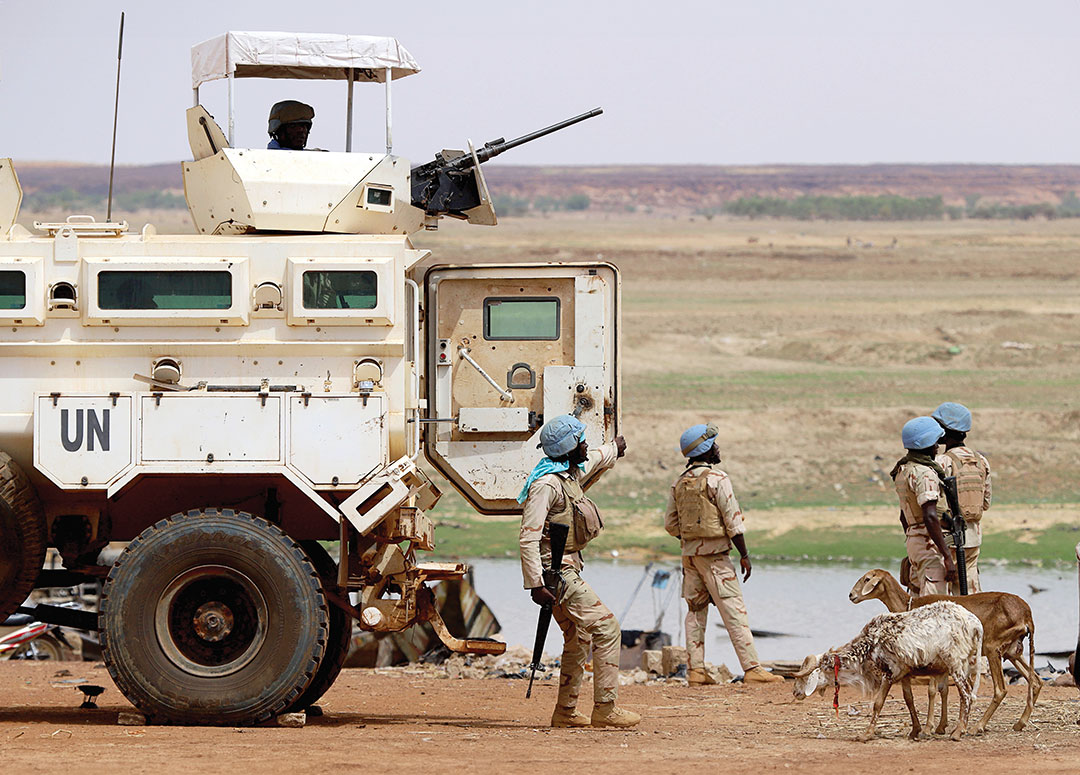
‘PEACE CANNOT BE IMPOSED’
Peacekeeping missions don’t require that peace negotiations be underway. However, de Coning concluded that future peacekeeping missions have a better chance at success in countries that have established a viable peace process. He said future missions must begin with a proper political project in the works, noting that “peace cannot be imposed.”
Some peacekeeping missions have been more about stabilization than peacekeeping, de Coning noted. A true peacekeeping mission should be to maintain a cease-fire or implement a peace agreement with the consent of all parties in the conflict. In stabilization missions, he said, the perception tends to be that the host nation is the sole beneficiary, while the dissenters and rebels are the enemy.
Future peacekeeping missions, de Coning said, will have to be more independent of the security forces of the host nation and not be viewed as simply additional capacity of the country’s armed forces. He also warned of a phenomenon called the “stabilization dilemma” where a decrease in hostility takes away the incentive of the parties to negotiate.
Many past peacekeeping missions have lacked the mandate and the capacity to completely neutralize armed rebel groups. Instead, they inflicted damage to such groups, leaving them “disrupted but not defeated.”
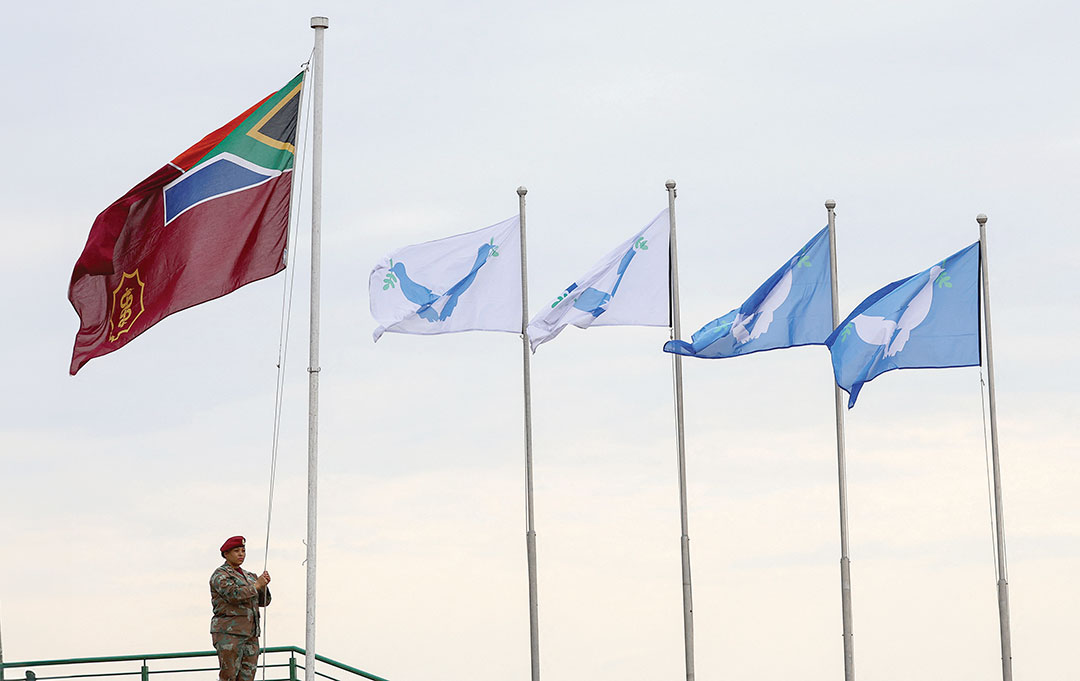
IDEAS FOR NEW MISSIONS
The U.N. continues to research how to improve peacekeeping missions. In his study, “The Future of UN Peace Operations in a Changing Conflict Environment,” U.N. researcher Adam Day offered suggestions on how to rethink future missions:
Prepare for the long haul. Day noted that the average lifespan of peace operations has increased steadily over the past 30 years. Today, there are missions deployed for years with little prospect of producing a clear, sustainable peace. As the World Bank has noted, the kinds of social and political transformations needed to transition to successful democracies take decades. Setting deadlines and mandate periods for such missions is useful only for tracking mission progress.
Day noted that the U.N. might need to set more modest goals and look at what can be done through peacekeeping in a three-year timespan while planning what other U.N. components can accomplish in 20 years.
Reexamine the use of heavy force. During long-term civil wars in which there is no viable peace process, the contribution of troops using heavy force “is far less certain, while the costs are extremely high in both financial and human terms.” Sometimes, brute force is necessary to protect civilians and prevent atrocities, but this goal should be clearly stipulated and not confused with support for a peace process.
Day said that if future deployments include ongoing civil wars, asymmetric violence, and “chaotic admixtures” of mercenaries, militias and foreign forces, “the utility of UN peacekeeping soldiers should be seriously reviewed rather than presumed as necessary.”
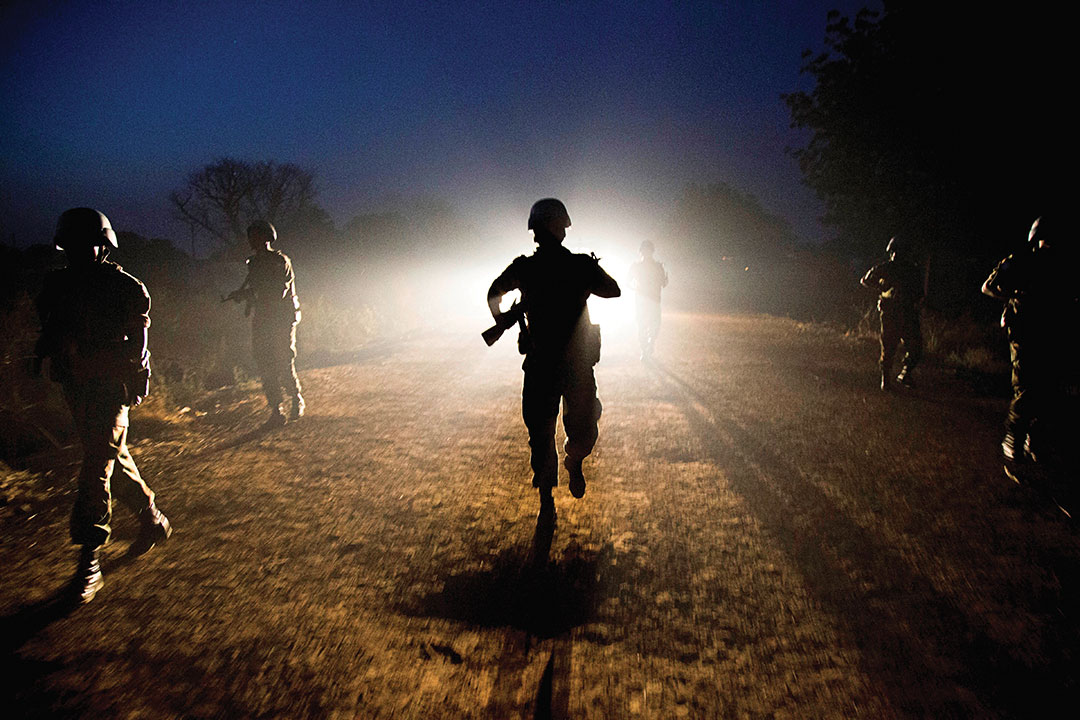
Build innovative partnerships beyond the U.N. The U.N. has successfully partnered with regional organizations to increase the effectiveness of operations, such as with African Union troops in Somalia. If trends continue, the U.N. “will be even more sidelined in major conflicts and will need to invest even more heavily in partnerships than today,” Day said.
Day said partnerships could include working with an international financial institution to develop conflict-sensitive disaster response planning. “Or in the case of conflicts involving transnational illicit networks, a peace operation might need to be linked to anti-trafficking organizations, or employ cyber-tracking experts,” he noted.
Build analytic capacity. Day noted that U.N. peace operations have significantly improved their analytic capacities, including the establishment of threat identification programs and emerging intelligence capacity.
He added that future conflicts largely will be dictated by socioeconomic factors, such as climate change, global economic downturns, or deepening inequalities resulting from urbanization, uneven growth, and new technologies limited to those who can afford them.
“Building bespoke political economy analysis is an important first step; establishing more meaningful engagements with international and national financial institutions is another,” Day reported.
Embrace complexity. Day notes that missions will get more complicated because of climate change, demographic shifts and new technologies. But, he noted, there is a tendency to reduce narratives to simple terms, in part to communicate effectively with all parties involved. Over time, the U.N. will need to embrace the interrelated nature of conflicts more than it does today.
“Future peace operations may need to include climate change scientists, economists, urban planners, and social media experts, if they are to understand and affect the trajectories of violent conflict,” Day reported.

